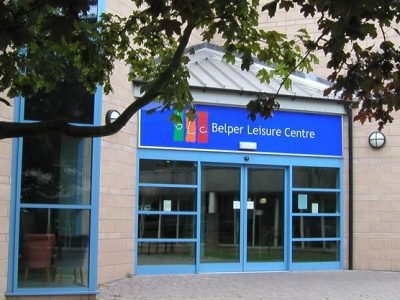When a company fails to pay its taxes, its account goes into arrears with HMRC. A serious situation, VAT arrears have unfortunately become markedly more common in recent months in light of the COVID-19 pandemic.

Being in arrears has seen some companies amass huge VAT bills, which often require urgent payment. But often this is through no fault of the company, usually being the result of external factors.
As the largest creditor for many businesses in the UK, HMRC can be notoriously quick to act when it comes to debt collection and has the powers to quickly wind-up businesses that they believe are insolvent. In fact, some 60% of all winding up petitions issued within the UK are issued by HMRC against businesses who have failed to pay their tax liabilities.
However, this need not be the case, and most certainly isn’t an inevitable consequence of VAT arrears. There are solutions.
What happens if my business is in arrears with HMRC?
Dean Nelson, Head of Business Recovery and Insolvency at Smith Cooper comments “When a company starts experiencing cash flow problems, they can sometimes adopt a panic strategy, whereby they prioritise some creditors over others as a short-term solution. Sometimes, this means deferring HMRC liabilities temporarily.”
He adds “If your company finds itself in financial difficulty, it’s absolutely critical to contact HMRC as a matter of urgency. Even if you are only experiencing a temporary financial decline, you still need to make contact. HMRC will first ascertain the reasoning behind your inability to pay, and given that your reasoning is legitimate, they will be able to work with you to devise a solution that is appropriate for your circumstances and will bring your VAT liabilities up to date.”
“If your company is considered viable, and there is a good possibility you will weather the storm, its highly likely HMRC will grant you extra time to bring your payments up to date.”
What options are available for companies with VAT arrears?
Financial pressures present themselves in many different ways, and for many different reasons. But the good news is that HMRC is usually willing to negotiate to find a solution.
There is a whole range of solutions available to companies experiencing financial difficulty or distress, and the type of solutions available is usually dependant on the company’s circumstances and previous trading history. The most common options include:
- Time to Pay Arrangement (TTP)With cash flow remaining an issue for many in light of the COVID-19 crisis, a Time to Pay (TTP) Arrangement may be a suitable option to ease short-term cash pressure and is a common solution for UK companies struggling to meet tax liabilities. A TTP is an arrangement (agreed by both HMRC and the company) that spreads a company’s tax payments over a longer period of time, to provide some breathing space and allow cash flow to improve. Future payments and returns however need to be made within their due dates.
- Company Voluntary Arrangement (CVA) A CVA is a legally binding compromise agreement between a company and its creditors, in relation to its debts. Creditors are legally bound by the terms of the arrangement. This process provides a structure for the company’s debts to be repaid over a fixed period of time, via monthly contributions to the supervisor in full or part.
- Company AdministrationCompany Administration is an Insolvency rescue process designed to assist viable companies that are struggling. It works by providing a legal moratorium preventing creditor action or duress. Administration is a positive rescue process that enables the company, in whole or part, to be saved for the benefit of all stakeholders, therefore preserving value, as the Administrator commences marketing the company’s company or its assets after their appointment.
- Creditors’ Voluntary Liquidation (CVL)Creditors’ voluntary liquidation (CVLs) is a process available to directors when a company is insolvent and there is no option other than to cease trading. The assets are realised and sold, employees are made redundant, and creditors are paid a dividend where possible.
Local insolvency experts, here to help you navigate periods of uncertainty
Here at Smith Cooper, we have helped hundreds of UK companies find a solution for their HMRC arrears and continue trading where working capital/ cash is tight. We offer a holistic range of services and provide candid, proactive, and commercially viable advice when you need it the most.
Our fundamental belief is that prevention is better than cure when it comes to financial difficulty, and that professional advice should be sought early, to achieve the best outcome possible. If you would like a confidential, no-obligation discussion with one of our advisors, please do not hesitate to get in touch.




